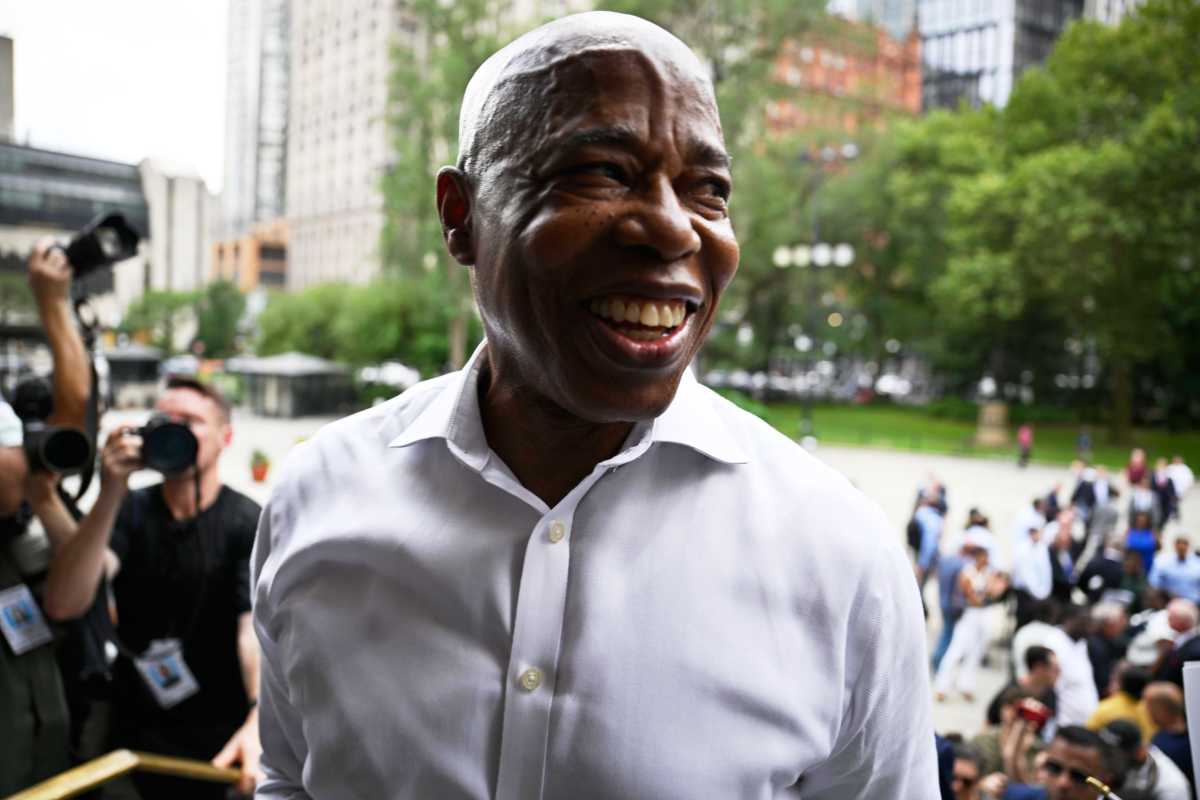In the wake of rampant violence against Jewish Brooklynites, Assemblyman Simcha Eichenstein (D–Borough Park) introduced legislation allowing judges to disregard the state’s new bail-reform laws in the case of defendants accused of hate crimes.
“Recent events have proven that those who commit hate crimes constitute a category of their own. Their crimes are fueled by an inner hateful passion that is often irrational, uncompromising, and unstoppable,” Eichenstein said in a statement.
Eichenstein’s Jan. 2 bill would reverse state bail reforms specifically for felony hate crimes, giving judges the power to set bail or remand defendants into custody, out of fear that progressive criminal-justice reforms will embolden bigots to future acts of violence.
“I fear that the trend of criminals who commit heinous, violent crimes being released onto the streets without bail could become the new normal in New York unless we rectify the law to consider perpetrators of hate crimes in a separate category, to be arraigned under the previous system of pretrial monetary bail or pending a judge’s discretion,” he said.
The politician — whose district includes ultra-Orthodox Jewish enclaves in Borough Park and Midwood — introduced his new law following a series of attacks against Jews in Brooklyn since Dec. 23, in addition to a brutal machete attack that left five Hasidic Jews with heinous wounds at their upstate New York home during a Hanukkah bash.
The state Legislature and Governor Andrew Cuomo passed a slate of criminal justice reforms which went into effect at the beginning of this year, including ending cash bail for most misdemeanors and non-violent felonies and getting rid of pre-trial detention for all misdemeanors and most nonviolent felonies.
The changes drew heat from Republicans, conservative Democrats, and law enforcement officials, who pointed to the case of a 30-year-old Brooklyn woman released without bail twice for two misdemeanor assaults — once after allegedly slapping three Orthodox Jewish women and shouting anti-Semitic slurs at them on Dec. 27, and again for punching another woman two days later in Crown Heights, the Post reported.
A Kings County judge eventually ordered the woman committed for psychiatric evaluation on Jan. 3 after she didn’t show up for an appointment with social workers two days prior.
But one advocate noted that these crimes occurred before the new laws took effect and that politicians were using this recent crime to fear monger in a similar way to the late President George H.W. Bush, who used the release of Massachusetts prisoner Willie Horton to attack his Democratic opponent for being soft on crime during his 1988 presidential campaign.
“I think it’s deeply concerning and it’s reminiscent of Willie Horton fear-mongering,” said Insha Rahman, a director at the Industry City-based criminal justice advocacy group Vera Institute of Justice.
The advocate and former public defender said that judges now have more options for preventing defendants from fleeing than locking them up, or demanding bail, which include counseling, mental health services, and electronic monitoring.
“It’s very clear she has mental health issues that have gone untreated,” she said. “To address that you have to address the underlying issues.”
Rahman also noted that judges can still set cash bail on all misdemeanors and felonies if a defendant repeatedly fails to show up to court.
But as senior state politicians have signaled they might revisit bail reform, Rahman urged them to give the changes some time to actually have an effect.
“I recognize that there’s a knee-jerk reaction because somebody is in fact harmed by someone who shoves you on the street and shouts a racial epithet,” she said. “We need to give it at least six months if not a year of implementation before we make decisions about what is working.”























